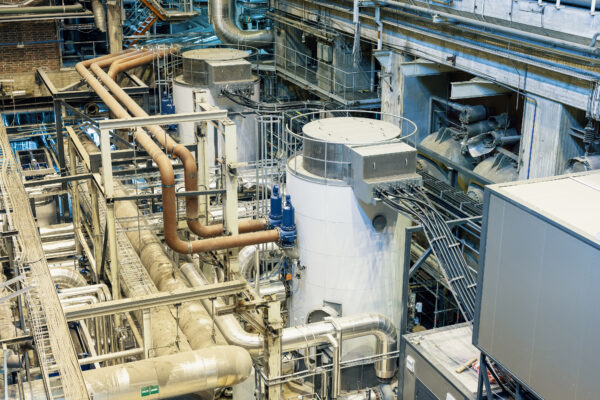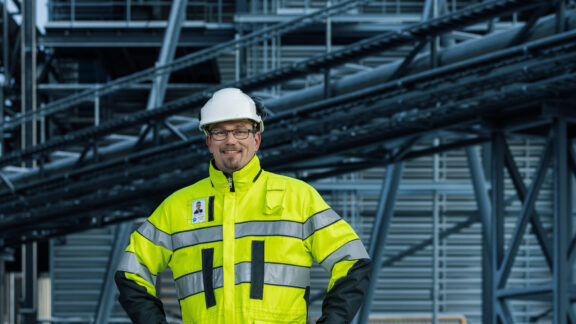EPV Energy’s total number of electric boilers rose to five last spring when Tornion Voima commissioned a new one. This brought the total combined output of EPV’s electric boilers to 240 megawatts. EPV already had three electric boilers in Vaasa and one in Seinäjoki.
A significant proportion of the company’s zero-emission heat is already produced using electric boilers. Mats Söderlund, Vice President of Combined Heat and Power Production, explains why EPV has invested heavily in increasing its electric boiler capacity in recent years.
Mats Söderlund, why has EPV Energy decided to invest in electric boilers?
“We have long observed a trend where low electricity prices prevail when conditions are favourable for weather-dependent electricity generation. We need to find ways to make flexible use of electricity in such situations. Electric boilers are an effective solution to this.”

What are the strengths of electric boiler technology in energy production?
“The strengths of electric boilers are their low investment costs, ease of use and extremely responsive regulation capability. But what is even more important is to create storage capacity for the heat they produce.”
How do existing storage facilities, such as the thermal energy storage facility in Vaskiluoto, affect investments in electric boilers?
“Storage is the key to being able to use and store the electricity we produce. Electric boilers are cost-effective and flexible solutions, making them an excellent fit for the heat storage process.”
How can electric boilers contribute to the production of heat and renewable energy and support EPV Energy’s strategy to increase the share of zero-emission energy sources in its portfolio?
“Electric boilers have tremendous potential in this regard. We are responding to a demand for district heating and are able to use electric boilers to help meet this demand. It is essential that we know how to make the most of the electric boilers and storage facilities when there is volatility in the electricity market, weather conditions or prices.”
“The general trend in heat generation is towards non-combustion technologies, and electric boilers are a big part of this solution. Electric boilers operate in different market situations and can be used with different forms of power generation, and are therefore an essential part of EPV’s overall strategy.”
How does an electric boiler complement forms of renewable energy production, such as wind and solar power?
“The more weather-dependent electricity generation we engage in, the more we need ways to balance production. Electric boilers are extremely beneficial in this context. They are well suited as an element of weather-dependent power generation when there is a lot of electricity in the grid, providing both load following and heat production.”
Does EPV plan to invest in new electric boilers also in the future?
“There will almost certainly be more such investments in the future. Electric boilers offer a flexible option to make use of cheap electricity at a relatively low investment cost.”
Additional information: Mats Söderlund, Vice President, EPV Heat, tel. +358 10 505 5059

